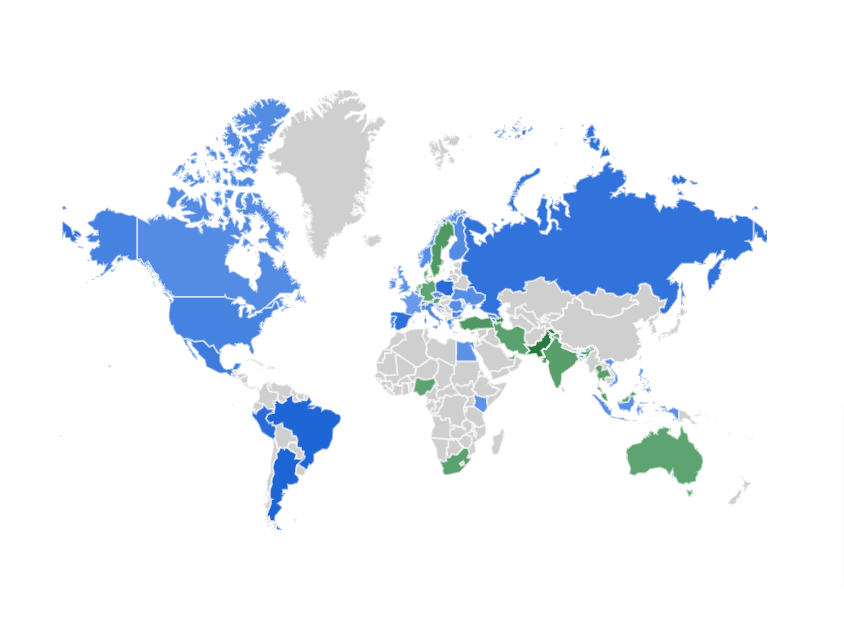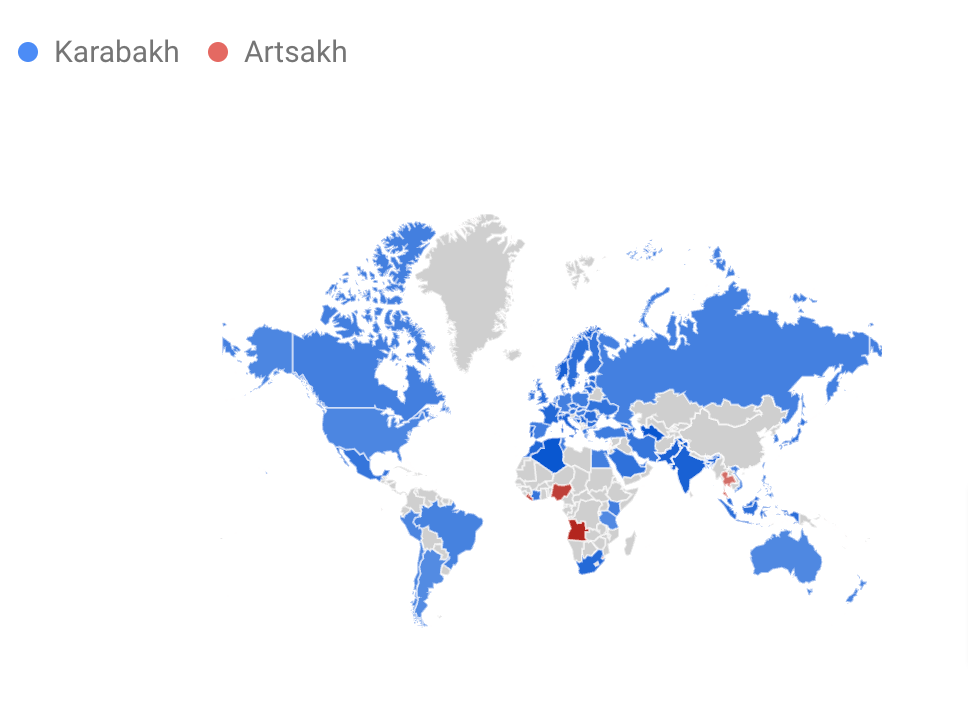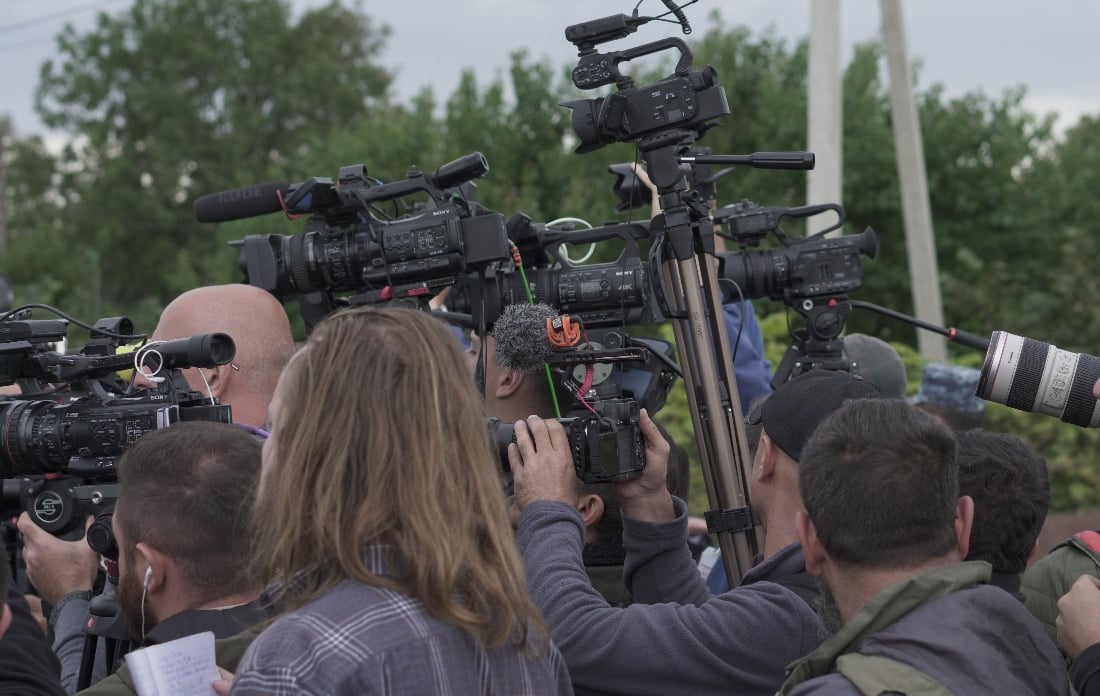Have our efforts in the information arena yielded tangible results for the defense of Artsakh and Armenia? In simpler terms, have we effectively used press and social media to expose Azerbaijan’s aggression against Armenia and highlight ethnic cleansing in Artsakh, aiming to influence a positive shift to stop Baku’s military?
Answering who comes out on top in the information war during a conflict is tricky. You’d need extensive sociological studies in many countries to get an accurate picture. That’s why figuring out which side wins in information warfare is more challenging than it might seem.
However, it is possible to perform basic monitoring to draw initial conclusions.
For instance, one can estimate the level of interest in a particular topic by analyzing the extent of people’s activity in search engines globally and in a specific country; this can provide a rough understanding of people’s interest in the topic.
Let’s examine the search activity on Google for the English keywords Armenia, Karabakh, Artsakh, and Azerbaijan over the last year.


This data reflects the search volumes by keywords and percentages. The information reveals that the interest in Azerbaijan appears lower than in Armenia.

The map above highlights the countries demonstrating greater interest in Azerbaijan (marked in green) and Armenia (marked in blue). It’s noteworthy to observe that Pakistan, which considers Armenia as its enemy, is more interested in Armenia, while India shows the opposite inclination. However, a considerable gray area is denoted on the map, which includes the countries where the number of searches was low. The figures are too insignificant to take them into account.
Throughout the observed period, interest in Artsakh was very low, except for those days when it was already too late.
Unfortunately, it can be seen that we have not been successful in transforming the perception and representation of Karabakh into Artsakh in the international press over the years. However, it is interesting that people in England, Nigeria, and Thailand search for “Artsakh” instead of “Karabakh”.

It has been observed that interest in Artsakh among Russian-language searches on the Yandex system was consistently low until just before the conflict escalated. Despite the prolonged blockade, the topic did not garner much attention from the audience until mid-September. The two attached images depict the search volume for the terms “Karabakh” and “Armenia” over the course of a year.


Although it is an imprecise method, the toolkit can be used to create an approximate relative picture. However, it is important to note that the efforts in the information sector have been inconsistent with the real dangers and continue to be so.







